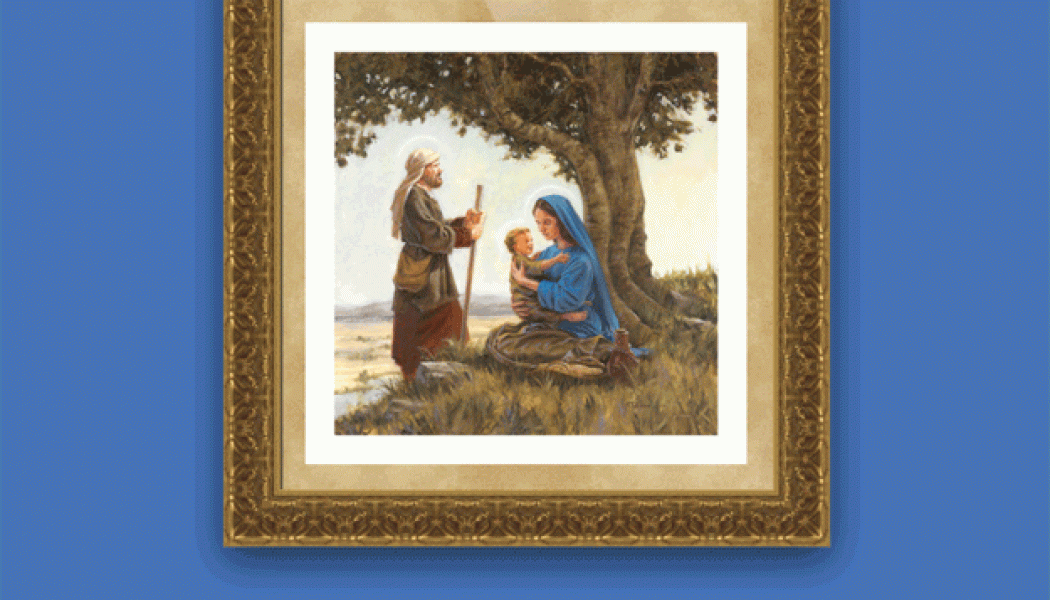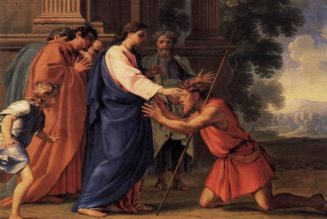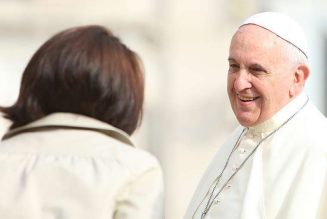By Dr. Jeff Mirus ( bio – articles – email ) | Apr 30, 2021
Reflecting further on Phil Lawler’s book on the Church’s handling of Covid (see my review of Contagious Faith), I suddenly thought of the predicament King David faced after he took a census of Israel in order to determine the extent of his power. He did this through a significant sin of presumption, so the Lord told the prophet Gad to prepare the king for punishment.
Accordingly, Gad instructed David to choose one of three things: Three years of famine, three months of devastation by his foes “while the sword of your enemies overtakes you”, or “three days of the sword of the Lord, pestilence on the land, with the angel of the Lord destroying throughout the territory of Israel” (1 Chr 21). David’s reply is worth remembering:
I am in great distress. Let me fall into the hand of the Lord, for his mercy is very great, but let me not fall into the hand of man. [1 Chron 21:13]
Now fast forward roughly three thousand years. Let us suppose God gives His Church a choice to submit to the secular power of its enemies or to suffer from “the sword of the Lord, pestilence on the land, with the angel of the Lord destroying throughout the earth”. This may be a simplification, but it seems to be me to be close enough to our Covid reality to give us pause.
In and Of the World
We are sufficiently “of” the world that we tend to accept human governments at face value, finding all kinds of excuses for why it is expedient for the State to ignore God’s law, and taking for granted that it is reasonable to leave our faith at the door of public life. And as the alleged scope of public life extends ever more deeply into our work, schools, homes and even churches, we tend to regard it as some sort of a natural progression in a well-organized society.
Nor is this unusual historically. We do not need to look at first-century Rome, or eighteenth-century France, or twentieth-century Russia, Germany or China to find a constant scraping away at the prerogatives of Christ and the Church on the part of civil authority. This has been a feature of nearly every government ever established, even in the period of what we call Christendom. It has been an overpowering feature of English governance since the sixteenth century, and therefore a very common feature of social life and governance in the United States since colonial times. There are numerous analogues in Europe, and indeed throughout the rest of the world—too many to count.
This is so true that even when things are very bad indeed, most of us rapidly begin to take it for granted. Sadly, we are indeed “of” the world far more than is strictly required to be merely “in” it. If we think we are entirely exempt from such a tendency, let us raise our hands. But seeing no hands, I am safe in assuming that we all take a certain amount of anti-Christian animus for granted. And once we have taken it for granted at each stage of Christian erosion, we tend to prime ourselves with arguments to explain why Christ really ought to be excluded from this or that area of human affairs.
We begin to speak not of Christ the King but of Christ the Interloper, or Christ the Imposition, or even Christ the Imposter.
The Covid Calamity
The same has been true of our response to Covid. While pretending a certain independence, the official representatives of the Catholic Church have almost uniformly followed one series of rules after another laid down under dubious authority by the agents of secular governments throughout the world. Here and there we have seen challenges in court; here and there we have seen disobedience. But these have been exceedingly rare exceptions. Moreover, these exceptions have been prompted chiefly when the Church has been treated differently from other organizations, which may be predictable but is not at all the whole point.
This normative compliance has held true despite strong evidence that the Catholic Church is perfectly capable of taking reasonable and effective precautions without paring her sacramental ministry down to essentially nothing. But of course, within materially and spiritually prudent limits, the Church’s viral track record is not the real issue. The real issue is the Church’s decision (and our own) as to whether she should prefer to fall into the hands of men or the hands of God.
I remind everyone that the history of the past year-plus is the history of a Church that, from the Pope on down, seems very much to prefer to fall into the hands of men. At no significantly high level, as far as I am aware, did any prelate make the argument that what the Church ought to do is to continue her ministry with absolute trust that God would bless all who participated in it, whether they fell sick or not. If we were not so “of” the world, I think we would have been startled by the utter absence of that argument—or, better, that conviction. Even if Churchmen decided to take certain precautions, one would have expected that conviction to imbue the Church’s decisions and actions every step of the way.
Falling into the hand of the Lord
We might also have expected some very good preaching during the Pandemic to the effect that we ought not to be particularly fearful in times like this, but rather to express a simple confidence in God, knowing that whatever He permits to happen will draw us closer to Him, if only we will trust Him with our entire lives as we should. Searching my memory, I don’t think I heard any preaching to that effect ever, not even once. That seems strange to me, perhaps even ominous.
For most of us—bishops, priests, deacons, religious and laity—this was a new experience. Despite many worldly ups and downs, the last worldwide crisis was probably World War II, which ended before the vast majority of us were born. Certainly in the West, at least, most people alive today have never faced any challenge which carried the possibility of widespread death. We were all, I would suggest, pretty green…and very spoiled.
But the result seems to me to prove again how wise King David was when, in reflecting on his own sin, he chose to be punished by God rather than by man, since man is so much less merciful. Too many Catholics and their ecclesiastical leaders chose in this case to fall into the hand of man rather than the hand of God. What might the Church have gained had we recognized our sinfulness as David did, and so made David’s choice?
Sound Off! CatholicCulture.org supporters weigh in.
All comments are moderated. To lighten our editing burden, only current donors are allowed to Sound Off. If you are a current donor, log in to see the comment form; otherwise please support our work, and Sound Off!

Join Our Telegram Group : Salvation & Prosperity










